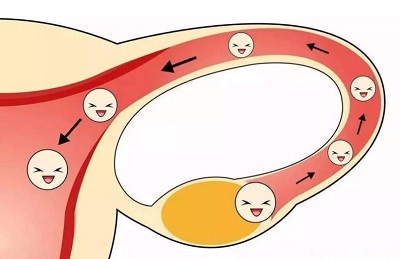The fallopian tubes are part of the female internal genitalia and appear like a pair of long, thin, curved, muscular tubes that are located on either side of the uterus. The fallopian tubes are the meeting place for sperm and eggs, so their smoothness is essential for women to conceive. If the fallopian tubes are wholly or partially blocked due to various factors such as congenital malformation, inflammatory infection, injury, pelvic adhesions, etc., sperm and eggs cannot meet.
Blocked fallopian tubes are one of the most important causes of female infertility. For this reason, many women seek medical help actively and even resort to surgery to treat tubal obstruction. However, they are also worried about the after-effects of the surgery. It is impossible to generalize whether this surgery will leave sequelae or not because there are uncertainties in the patient's physique, the way the doctor operates, and the post-operative care.
Patients with blocked fallopian tubes usually have no apparent symptoms. Patients are primarily found during infertility visits, or some women show signs of reproductive tract infection, such as lower abdominal pain, increased guided discharge, thickening of the adnexal area, or formation of a mass. The treatment of tubal blockage depends on the severity of the disease. A few patients with mild symptoms can receive oral or injectable antibiotics, tubal lavage, and ultrasound physical therapy. But, most patients need surgery to unblock the tubes to achieve satisfactory results.
For the specific surgical operation, the patients need to follow the doctor's advice and take appropriate treatment measures according to the stage of the condition. Generally speaking, if the blockage is not complete or the tube is not smooth, multiple tubal lavage procedures can be performed to clear the fallopian tubes; if the blockage is complete, a combined hysteroscopic and laparoscopic surgery of the fallopian tubes is required. These are minimally invasive surgeries. Although the surgery is less invasive and recovery is fast, it can still bring some after-effects if after-care is not taken.
Specifically, there may be the following after-effects:
1. It may cause pain.
One of the more common procedures for blocked fallopian tubes is tubal lavage. This operation mainly involves injecting melanic fluid or saline into the uterine cavity through the cervix and flowing from the uterine cavity into the fallopian tubes. The doctor determines whether the fallopian tubes are smooth or not based on the resistance of the injected fluid and fluid reflux.
The fluid pressure is used to restore the smoothness of the fallopian tubes. This procedure is suitable for patients with relatively minor blockages. However, the patients will feel pain and uncomfortable during the procedure. Usually, the more severe the blockage, the more pronounced the pain will be for the patients.
2. It may cause abdominal distension.
After the tubal lavage procedure, the patients may experience abdominal distension, which usually eases slowly after rest.
3. It may cause infection.
Tubal lavage surgery, hysteroscopic or laparoscopic surgery may not completely eliminate the inflammation in the patients’ body. They may also cause infection in the uterine cavity due to bacteria brought in during the operation, leading to tubal adhesions and blockage. At the same time, patients tend to be weak and resist poorly after undergoing surgeries. Infection may also occur if improper care is provided.
4. It may cause disrupted tubal function.
The procedure may destroy the fallopian tubes' peristaltic ability and the fallopian tube cilia's oscillating ability, resulting in the fallopian tubes' function and increasing the chances of infertility.
Although tubal blockage does not cause obvious discomfort to the patients, the disease is likely to cause infertility and other problems, significantly affecting their family harmony and psychological health. Therefore, it is recommended that patients with blocked fallopian tubes go to a regular hospital for surgery and pay attention to post-operative care to avoid the after-effects.
The traditional Chinese medicine Fuyan Pill can be used for post-operative maintenance and conditioning blocked fallopian tube surgery. On the one hand, it can eliminate inflammation and kill bacteria, avoiding reinfection and re-blockage; on the other hand, it can repair damaged fallopian tube tissues and restore the function of fallopian tubes.
You may be also interested in:




